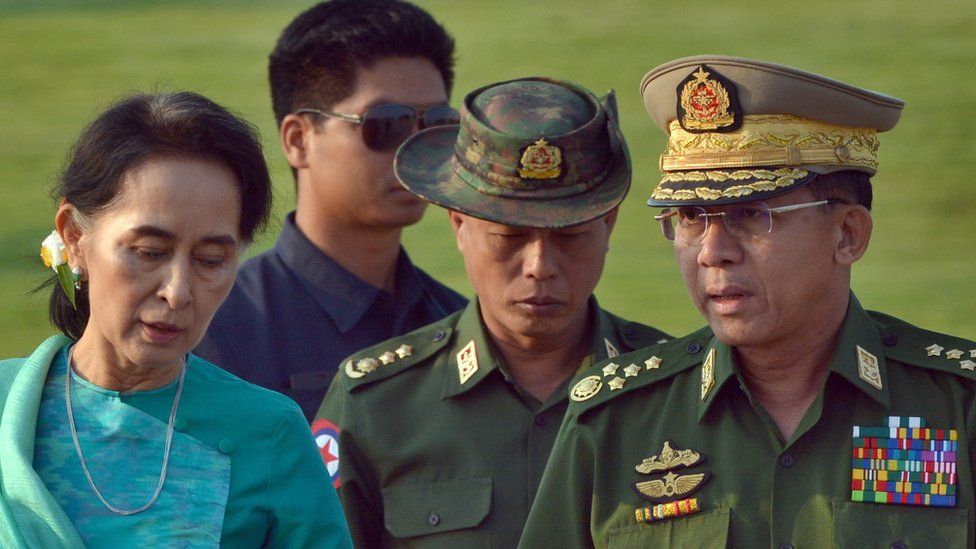Myanmar's Lady cosies up to the General
- Published

Myanmar's democratic icon, Aung San Suu Kyi, has had a rocky start since she took the reins of government at the beginning of April. But in the past week there have been some significant developments that suggest she is in fact on the verge of making a major step in the country's transition to a more democratic and peaceful state. Myanmar analyst Larry Jagan explains why.
At the heart of this apparent breakthrough is an improved relationship with the military - the very same institution that kept her under house arrest for nearly two decades.
Last Sunday, she met several senior ethnic rebel leaders, from armed groups that have being fighting for regional autonomy for some 60 years, in an effort to secure their participation in her planned national peace summit scheduled for the end of August.
This was previously dubbed the 21st Century Panglong Conference, after the historic meeting in 1947 between Gen Aung San, her father, and several ethnic leaders, which committed the country to a federal state.
Since coming to power in April, the Lady, as she is known here, has made national reconciliation and peace the government's top priority.
While not all the ethnic groups have, as yet, agreed to participate, there is little doubt that the peace initiative will make significant strides towards Myanmar becoming a more truly democratic and federal state. This is all the more likely as the Lady is certainly cosying up to the top army commander, Senior General Min Aung Hlaing.
Recent signs have suggested that the two have been improving their working relationship. They have also been seen together in public, something which rarely happened in the months immediately following the National League for Democracy's overwhelming electoral victory last year.
But the extent of this new-found friendship really emerged last Tuesday - Martyrs Day, when Gen Aung San's assassination 69 years ago is remembered. After they both attended the official commemoration ceremony, Gen Min Aung Hlaing paid a personal visit to the Lady's lakeside residence to attend a small private ceremony there.
This is the first time Myanmar's military commander has visited her in her home. In fact, it's the first time an army commander-in-chief has ever set foot inside the residence on University Avenue.
This is a crucial sign that the country's civilian leader, Aung San Suu Kyi - although denied the presidency by the constitution - and Myanmar's other most powerful political figure, Gen Min Aung Hlaing, are forging a close working relationship.
This is an important development, as the military remains the most important institution in the country, one whose support is crucial for the survival of any civilian government. For, under the constitution, the military maintains the right to seize administrative power if the army commander believes the country's security is endangered.
So instead of being rivals, as they have been since 1988, the Lady and the general's emerging partnership may lead to the current political stasis being unblocked, and allow the new government to implement its vision for the future.
Larry Jagan is a specialist on Myanmar and a former BBC World Service news editor for the region.